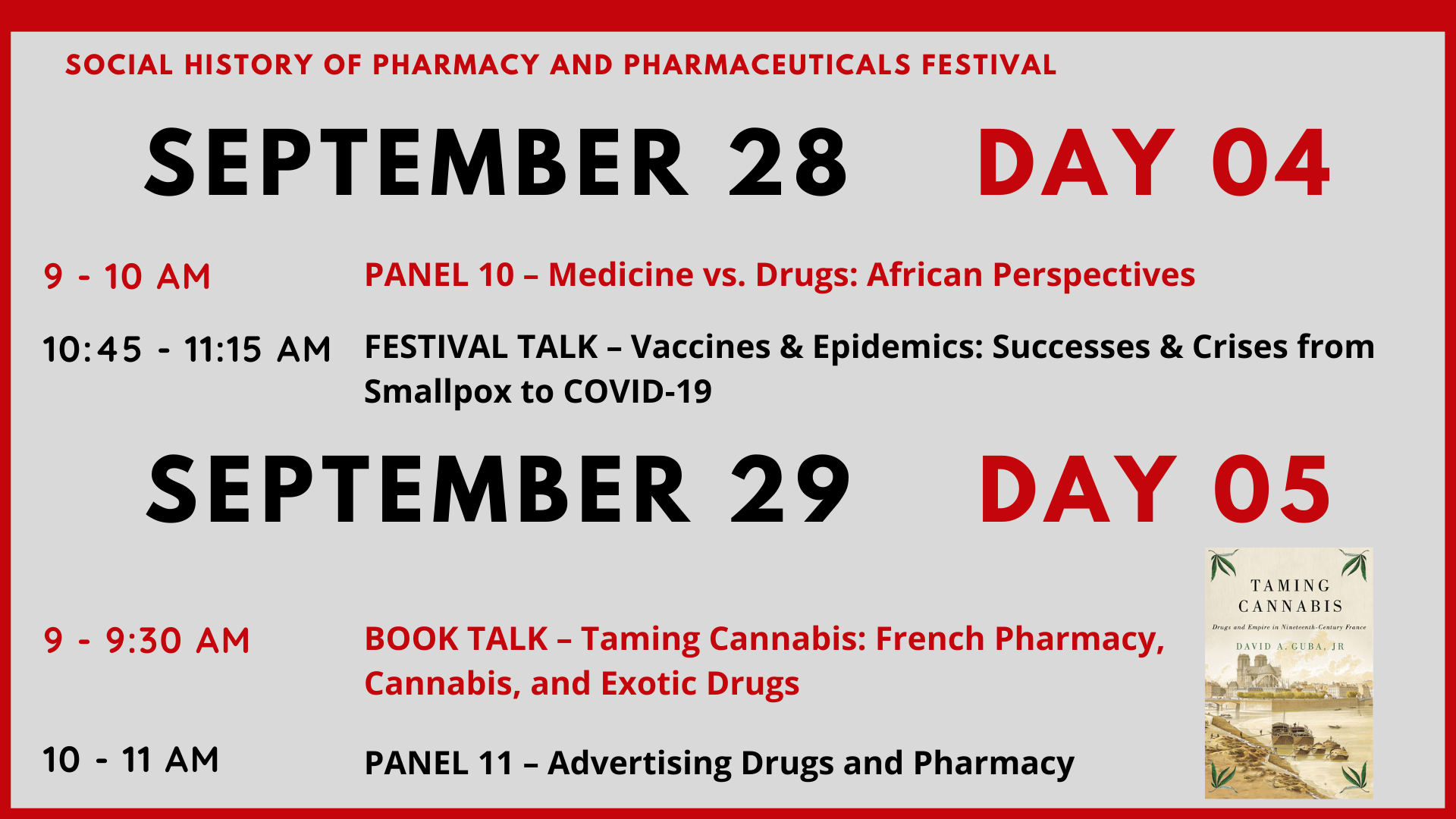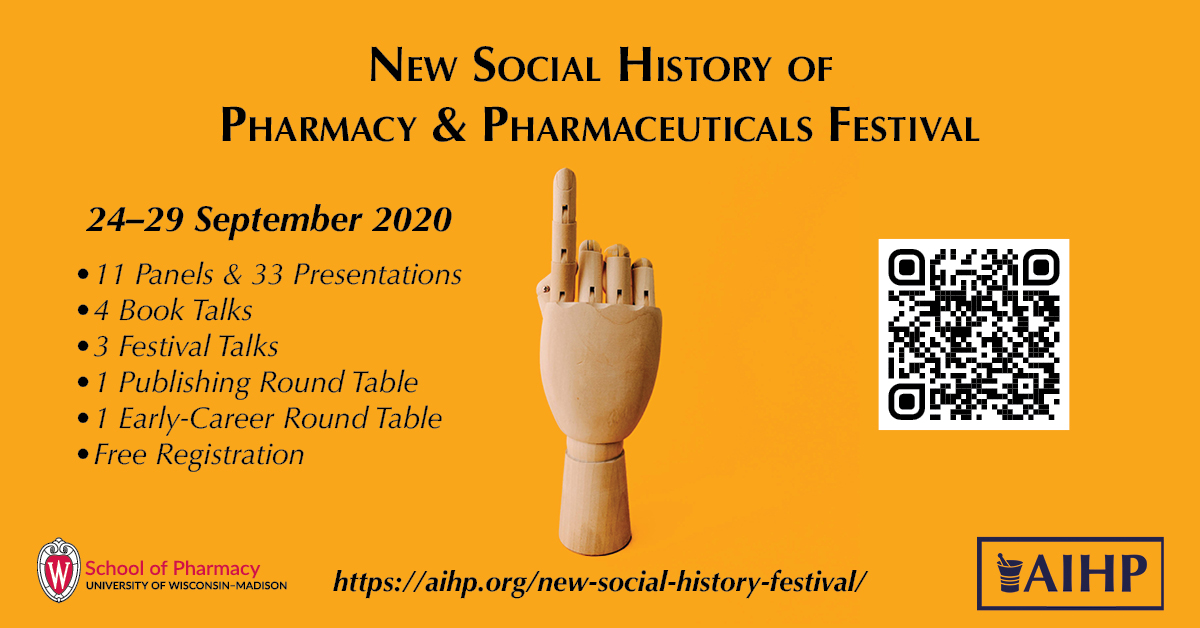
History comes alive in this new five-day festival that brings new insights to today’s urgent questions
By Tristan Dooley
Fascinating topics in the social history of pharmacy and pharmaceuticals will be highlighted in 11 panels, four book talks, three talks, one publishing roundtable, and one early-career professionals session. The virtual event, Social History of Pharmacy & Pharmaceuticals Festival, will explore the many dimensions of pharmacy history around the world. The five-day festival runs September 24-29 and is free to stream for those who register.
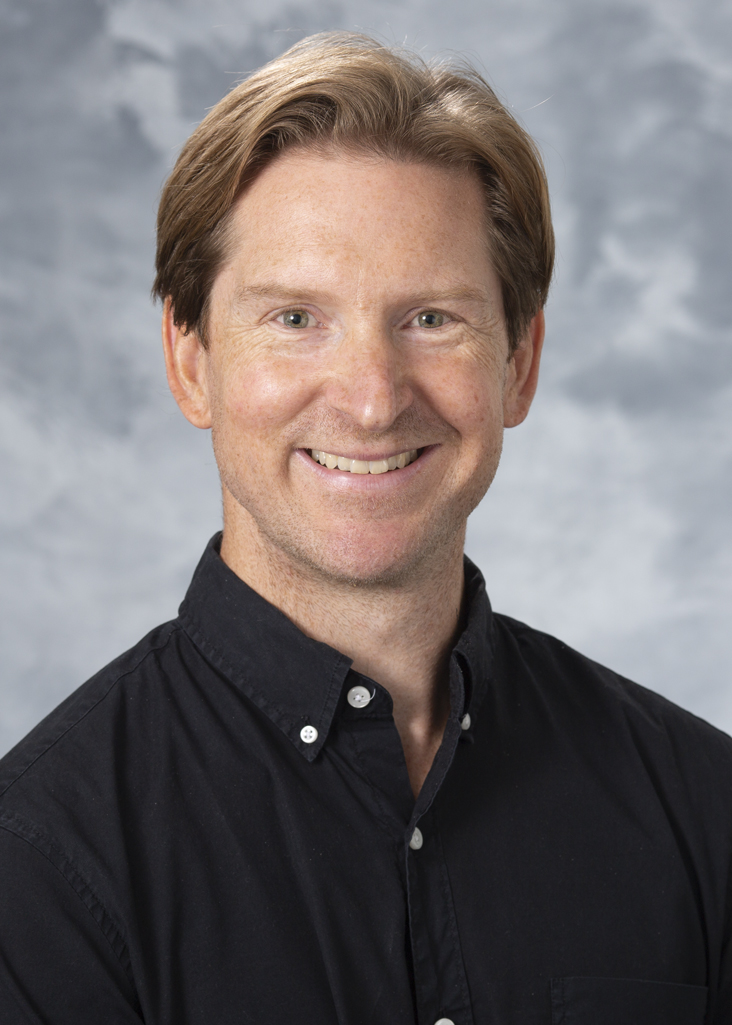
Co-hosted by the UW–Madison School of Pharmacy and the American Institute of the History of Pharmacy (AIHP), the festival aims to facilitate conversations and showcase current work being done in the field.
“I want to help generate a lively conversation around what the history of pharmacy and pharmaceuticals currently looks like and what it might look like in the future,” says Lucas Richert, Associate Professor and Urdang Chair in the History of Pharmacy in the School’s Social and Administrative Sciences Division and editor in chief of Pharmacy in History for AIHP, who is organizing the event.
“I created the festival to help illustrate the breadth and depth of work being done in this area. I want to help showcase the work of early career and established scholars alike, and from different parts of the world,” Richert adds. He hopes that these conversations can lead to researchers working together. “I want the festival to be a launching pad for possible future collaborations of all sorts,” he says.
The festival also will pay tribute to the School’s legacy with respect to the history of pharmacy. The School of Pharmacy was the first to award a doctoral degree in the history of pharmacy and the first to publish a history of pharmacy journal.
“The School’s past deans and professors had a serious interest in history. In 1941, the AIHP was established by the leadership at the School of Pharmacy. Creating the festival helps us celebrate that long tradition and fulfill our mission,” says Richert.
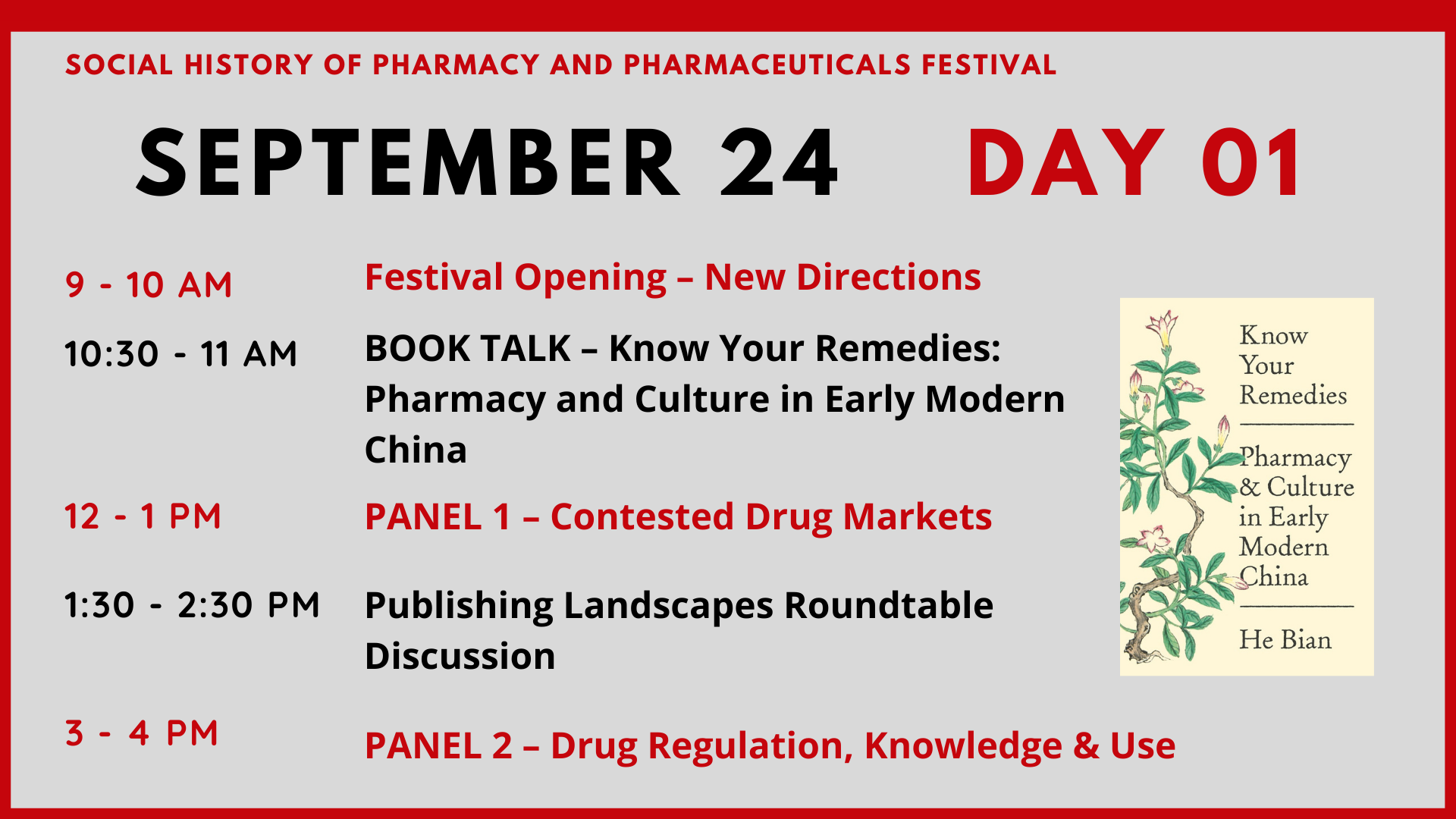
Due to COVID-19 safety and physical distancing measures, the in-person symposium was cancelled. The symposium transformed into a virtual festival that aims to accomplish the initial goals of conversation and collaboration, while making the content available to a larger audience.
“The festival is free, and it’s geared towards a broad audience, including people with interests or expertise in medicine, health, technology, and science. The more, the merrier,” says Richert.
The topics covered also are relevant to events happening around the world right now. “The histories of pharmacy and pharmaceuticals have a lot to suggest about the current moment in time, when people around the globe are wondering about a vaccine for COVID-19; the price, quality, and access to different types of medicines; and how we regulate drugs in 2020,” says Richert.
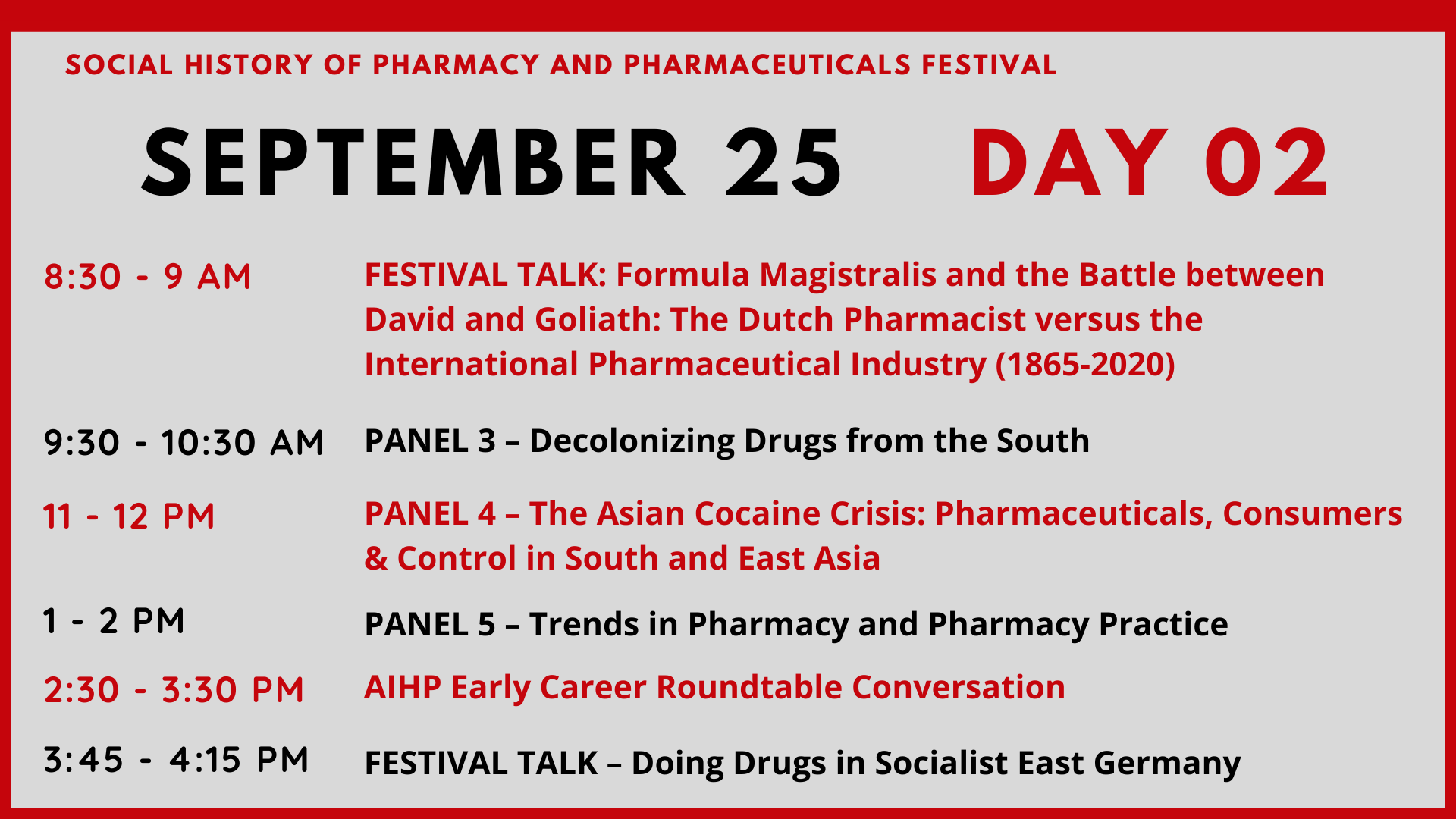
“I wanted the program to be inclusive. In choosing speakers and content, I also wanted a balance between the different types of scholars out there,” Richert says. “So, for example, there are invited talks dedicated to Naloxone or Chinese pharmacy or medical cannabis in France,” Richert explains.
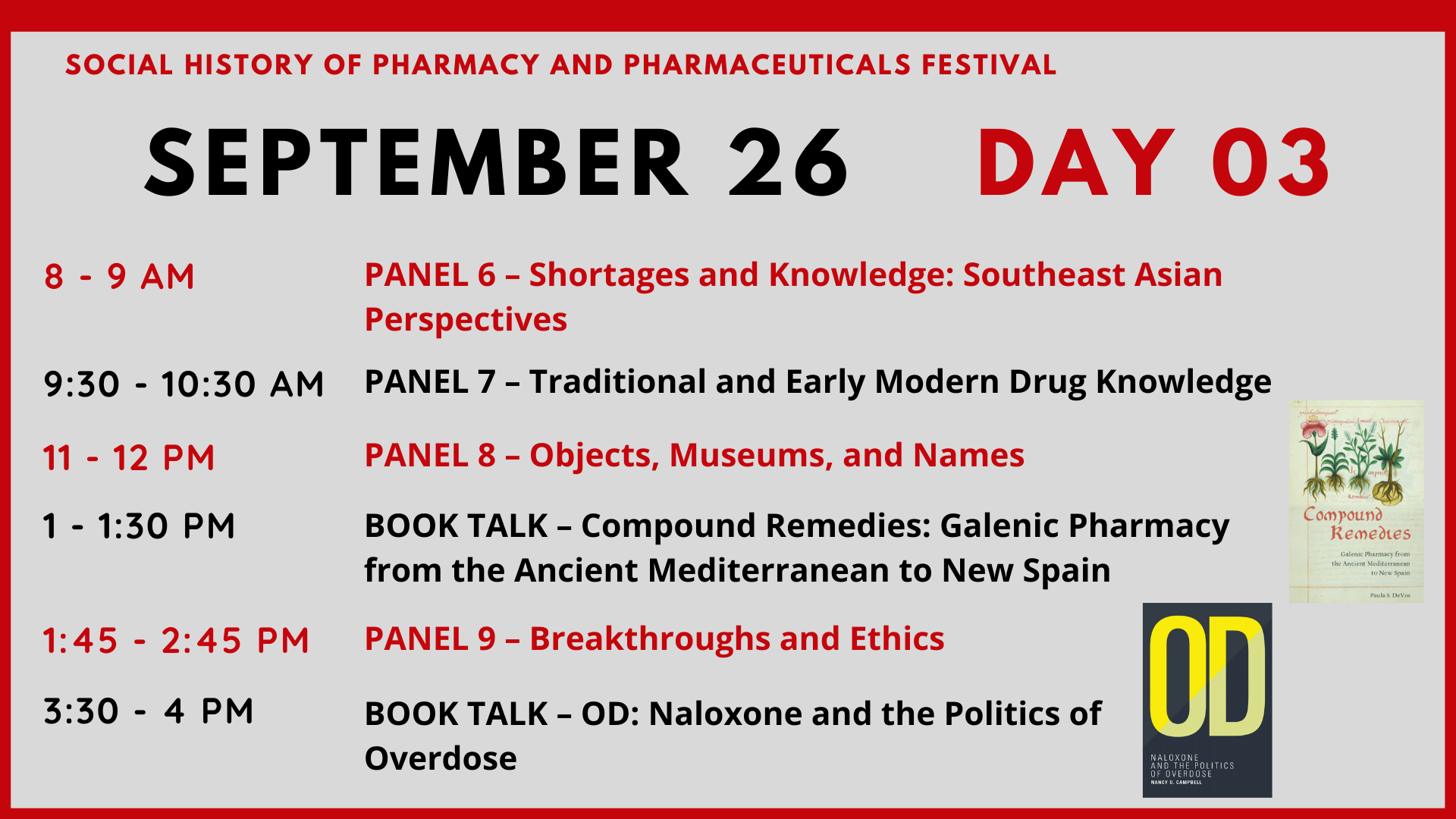
Richert hopes this festival will spark interest and encourage people to get involved with the history of pharmacy and pharmaceuticals field. “I hope that people walk away from their computers or TVs going, ‘cool, that was useful’ or ‘that evidence or approach helped my work’ or ‘whoa, the history of pharmacy and pharmaceuticals really matters to contemporary debates about health and medicine’. Then, I would hope those folks get involved with the field and AIHP,” says Richert.
